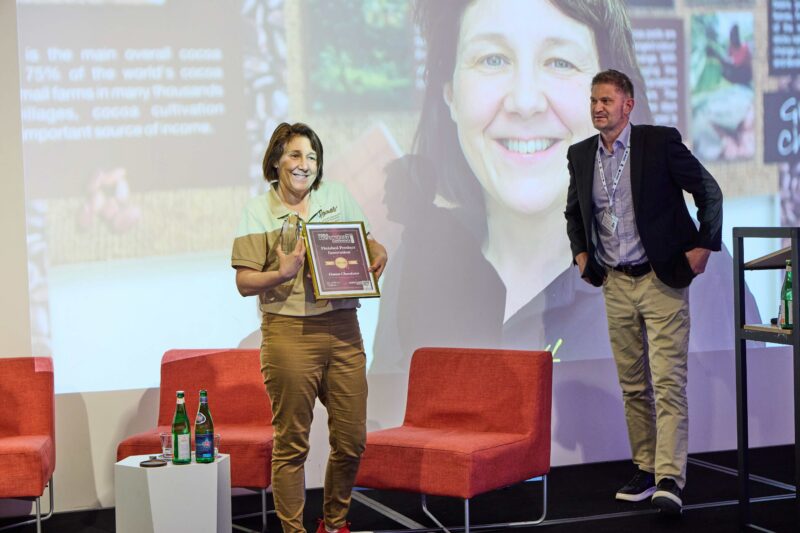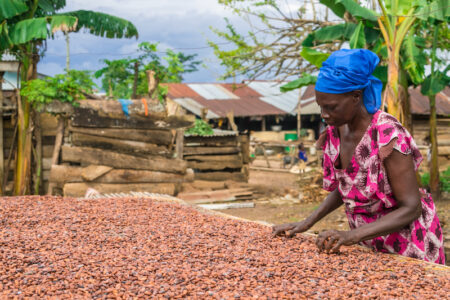Thanks for making our Brussels World Confectionery Conference a major success

Hames Chocolates claims a World Confectionery Award at the World Confectionery Conference. Pic: Dafos photgraphy
This week’s missive is very much one of a heartfelt thanks to all involved with our fourth edition of the World Confectionery Conference as it made its successful return to the Belgian capital of Brussels last week.
It’s fair to say there was a significant amount of planning across our company went into staging this year’s event, with the added sense of occasion with it celebrating our title’s 90th anniversary.
So much has changed in the confectionery, snacks and bakery segments during the course of that time, and our publication has been there to meet the needs of the industry down the decades.
From covering latest technology developments, through to providing a core platform for businesses to air their views and thoughts about the latest topics of the day – from regulations and technical innovations, through to responding to the needs of manufacturers and consumers in becoming more sustainable and transparent in how the industry is conducted, we have sought to report on the industry in a balanced and responsible manner.
This has extended to our approach to the World Confectionery Conference – which we have brought in over the past five years, and seen it evolve into a much-valued event. It has personally been extremely satisfying seeing the positive comments directed towards our team over the past week, so we can’t thank you all enough for your engagement once again.
Moreover, well done to all those who were worthy winners on the night for our World Confectionery Awards presented at the conference, including Hames Chocolates, DT&G Ltd, Luker Chocolate, Planet A Foods, Cama, Kruger & Salecker, Gelita and Sweetdreams Ltd, as well as for all those who entered this year, with some exceptionally strong contenders being put forward from around the world.
These shows simply cannot be a success without your collective engagement and that was very much in evidence last Thursday in Brussels. There was an extremely strong level of content that went into the event, from across finished products, ingredients, equipment and supply chains, which again reflects the broad nature of our combined industries (see our video review of the event on our website and subsequent edition of the magazine for our full review).
Notably, we addressed key considerations including the upcoming EUDR regulations, which even as I write, there are moves afoot seeking the delay in its implementation from within industry, which could have significant implications should that come to pass in the next month or two.
So, watch this space for future developments on such core policy topics, and we hope to be able to see you again with our next event, but for now, the deserts of Dubai beckon for ISM Middle East, placing the region’s vibrant confectionery sector under the spotlight.
Neill Barston, editor, Confectionery Production magazine
- keep in touch at [email protected] or via social media @confectionprod or our LinkedIn pages



